How to wash your clothes while travelling podcast
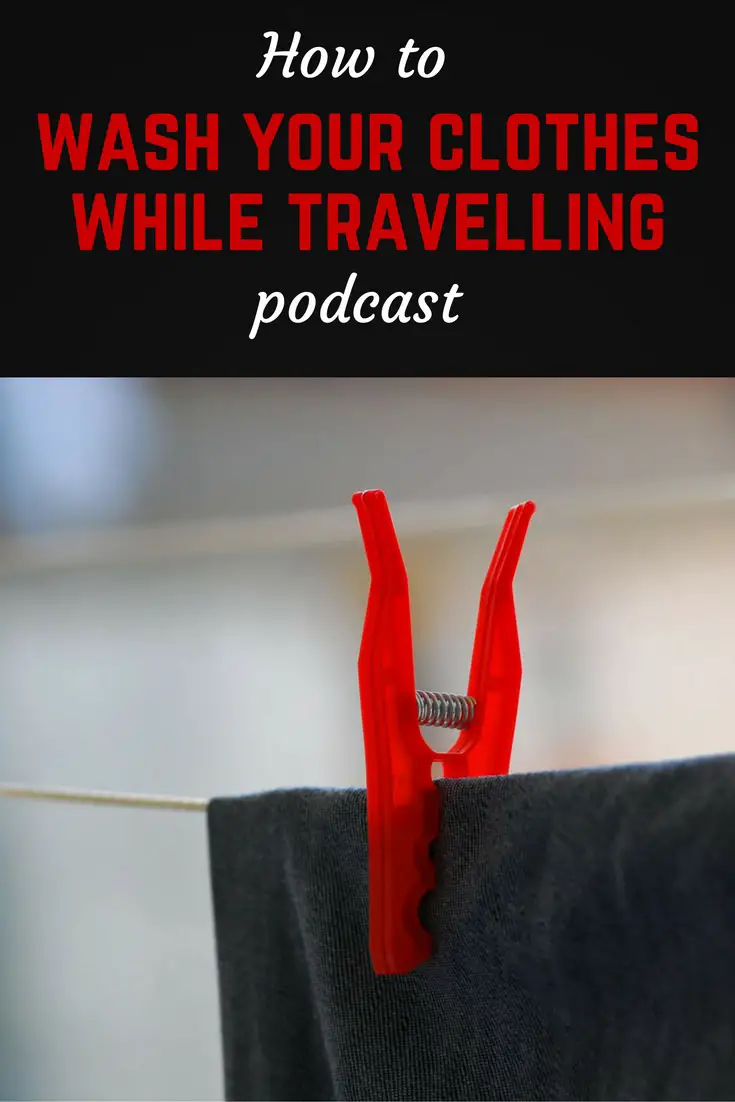
Pack light
The most important thing to remember when travelling is to pack light. This means you need to take fewer clothes, but you should also consider what each item weighs, and how easy it will be to wash — and of course, since you will have fewer clothes with you, you’ll need to wash what you do have more often.
To listen, hit play below or find episode 329 in iTunes, Stitcher or Soundcloud:
Avoid taking very heavy things like jeans and bulky jumpers, as they are hard to wash and even harder to dry. Leave the big towel at home and pack a sports or travel towel, which takes up a fraction of the space and dries quickly.
If you’re going somewhere cold, the trick is layering. Pack lightweight trousers and thermal underwear to wear underneath. Instead of one thick jumper, pack three thin ones — it’ll weigh the same or less, you can rearrange them for a change of wardrobe, and they’ll dry so much faster after being washed!
Leverage your accommodation
We used to hand wash our clothes as a way of saving money, and use a hostel washing machine or laundromat once a month or so to give our stuff a more thorough clean. These days, hand washing is for hiking and emergencies only — we definitely prefer to use a machine to wash our clothes if at all possible.
And the best way to find washing machines while travelling is to stay in places where washing machines are available — like ordinary people’s houses. Couchsurfing, AirBnb, housesitting… when using the sharing economy, most of the time you’ll be staying in somebody’s home, and they’re likely to have laundry facilities that you can use. Just ask politely if they have a washing machine you can use, and they’ll let you know if it’s possible. In our experience, many Couchsurfing hosts offer before we have a chance to ask.
Since we travel with carry-on sized bags, we need to wash our clothes about once a week. So, we make sure that once a week, we’re staying somewhere that has a washing machine available for us to use… and if we can’t find a Couchsurfing host, housesitting gig, or AirBnb rental, we look for a hostel that features a laundry.
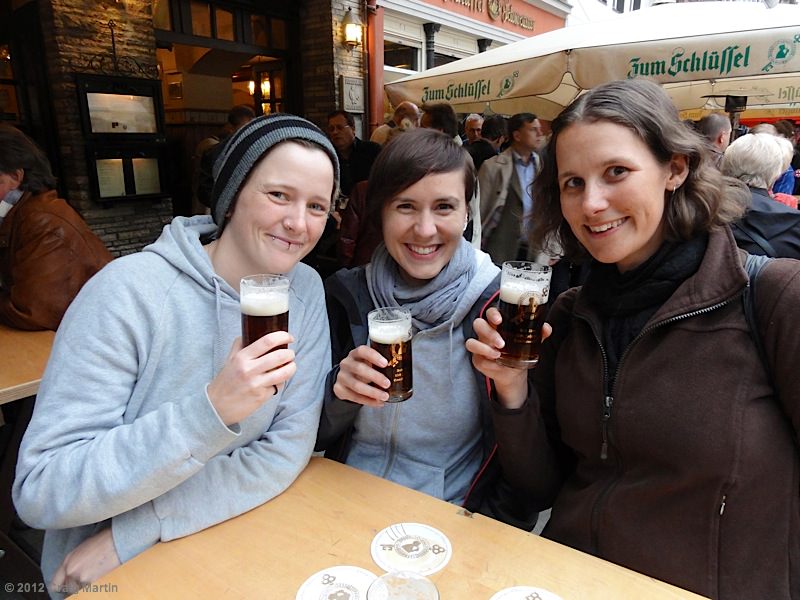
In a hostel or hotel
Many hostels have laundry facilities, so if you’re due to do a load of washing, choose one that does. Hostel washing machines are almost never free, but are often cheaper than a laundromat, and you won’t have to leave the comfort of “home”.
You’ll probably have to operate the machine yourself, and you may need coins or tokens. Don’t forget washing powder or liquid — it might be provided, you might have to purchase it at reception, or you might need to buy your own. Driers are also usually available, or hang up your clothes outside if you can.
Be aware that the laundry service many hotels offer is often prohibitively expensive (think $3 per sock) so we don’t recommend this option unless it’s an emergency.
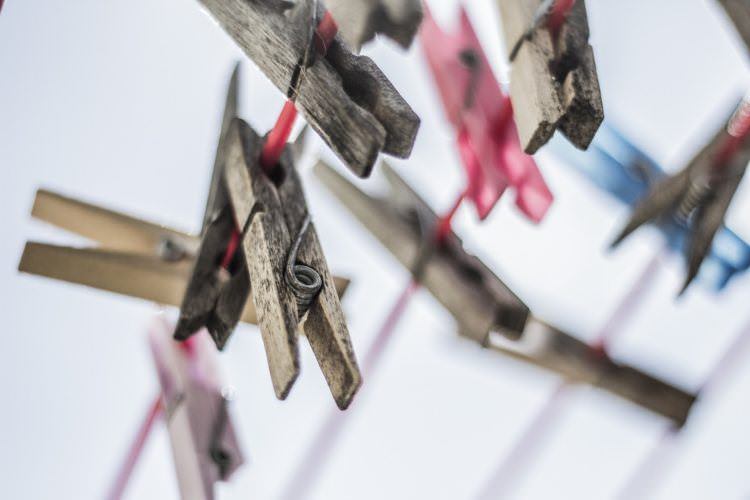
Laundromats
If you have enough dirty washing to make a full load, or can make a load up with your travel partner, it might be worth finding a laundromat. We don’t advise you make this your principal plan though, as sometimes a laundry can be hard to find — we had to admit defeat in Linz, and it took an hour or wandering in La Paz.
In some places you wash your clothes yourself (take coins, or you might have to buy tokens), in others you leave your clothes and collect them later or the next day. In this case, you often pay by weight, so lighter is better — avoid taking wet clothes. Even local people wash clothes this way in many parts of Latin America.
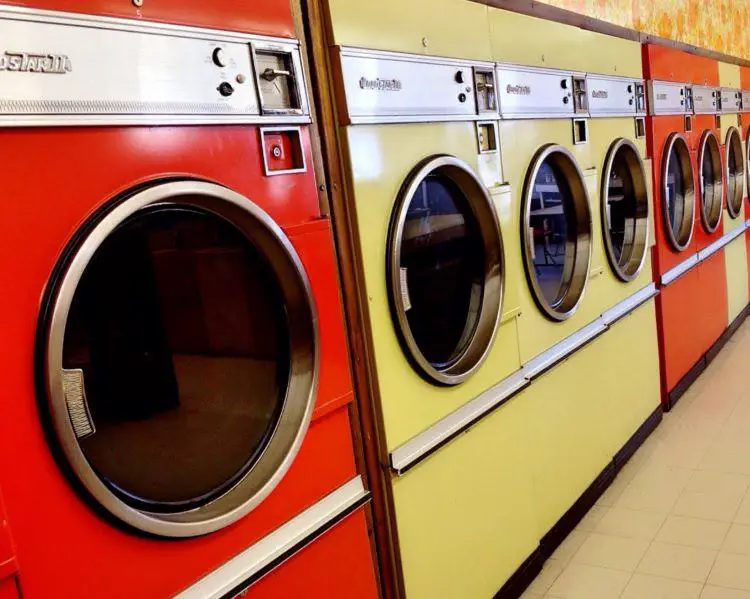
Handwashing
Depending on your travel style and where you are in the world, you may need to wash by hand at some point in the trip, which isn’t as bad as you might think. The trick is to do it regularly. Take your undies and socks into the shower with you, or wash them before you brush your teeth — make a habit of it. Larger items need a bit more time, and it can sometimes be easier to wash a few things at once. Find a system that works for you.
If you’re washing in a hostel sink, you might find it hard to find a plug. You can improvise with bluetack or a rubber ball, or just stop it up with one of your socks — though if you plan to do this regularly, it’s worth investing in a universal plug.
It helps to wash like items together — do your undies first, then socks, then t-shirts for example. Soap up the items first, and use different parts of the item to agitate at the dirt. Then rinse them in the soapy water, squeeze out and rinse once or twice in clean water. Twist to squeeze as much water out as possible.
Some clothes require special treatment. Trousers (particularly jeans) can be difficult to wash in a sink because there’s just so much material, so take them into the bath or shower with you instead. To wash socks, put one on each hand and rub together. And if you have zip-off trousers, it’s easier to wash three pieces than one large one.
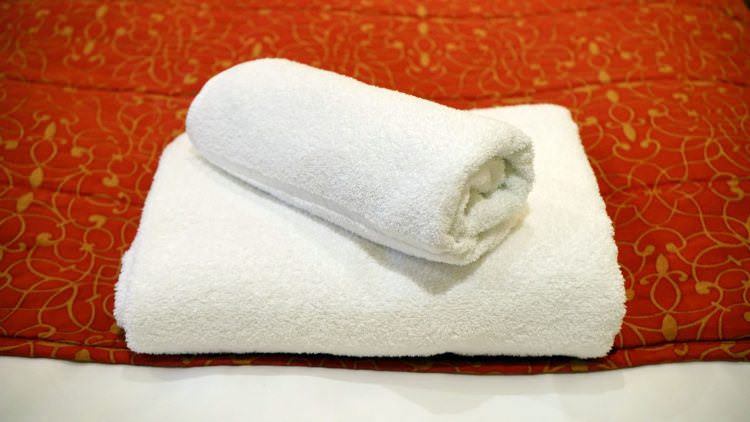
Drying
It can be tricky to find a way to dry your clothes, especially in winter. The most important thing is to get as much water out of the clothes after washing, and a towel can come in handy here. If you’re staying in a hotel, recycle the towel you used after your shower, or just use your travel towel. Lay the towel on the ground, then place your wet clothes on top of it. Roll it up then twist it as tight as you can — this will wick out a lot of the moisture.
Hang your clothes up outside or at least in a sunny place, or in the bathroom if you have a private one. A portable clothesline could be a good investment — get one that has two strands of elastic twisted together, so you don’t need pegs. In winter, hang your clothes close to heaters — but be careful as this can be a fire hazard.
Washing your clothes while travelling doesn’t have to be an ordeal — just wash small items regularly and keep an eye out for your next washing machine.
To listen, hit play above or check in iTunes, Stitcher or Soundcloud.
[box] This episode of the Indie Travel Podcast is sponsored by Select Italy.
From sommeliers to skydiving, farms to Ferraris, and museums to mud baths, Select Italy will custom- design your dream trip to Italy exactly how you always envisioned it. Whether you’re looking for food and wine experiences, accommodation, transport, or tickets to museums and theatres — or all of the above — Select Italy’s travel experts are there to help.
Find out more about Select Italy.[/box]
This post was originally published in 2010, but we recorded a new podcast and updated the information to bring in all that we’ve learned over the last six years!

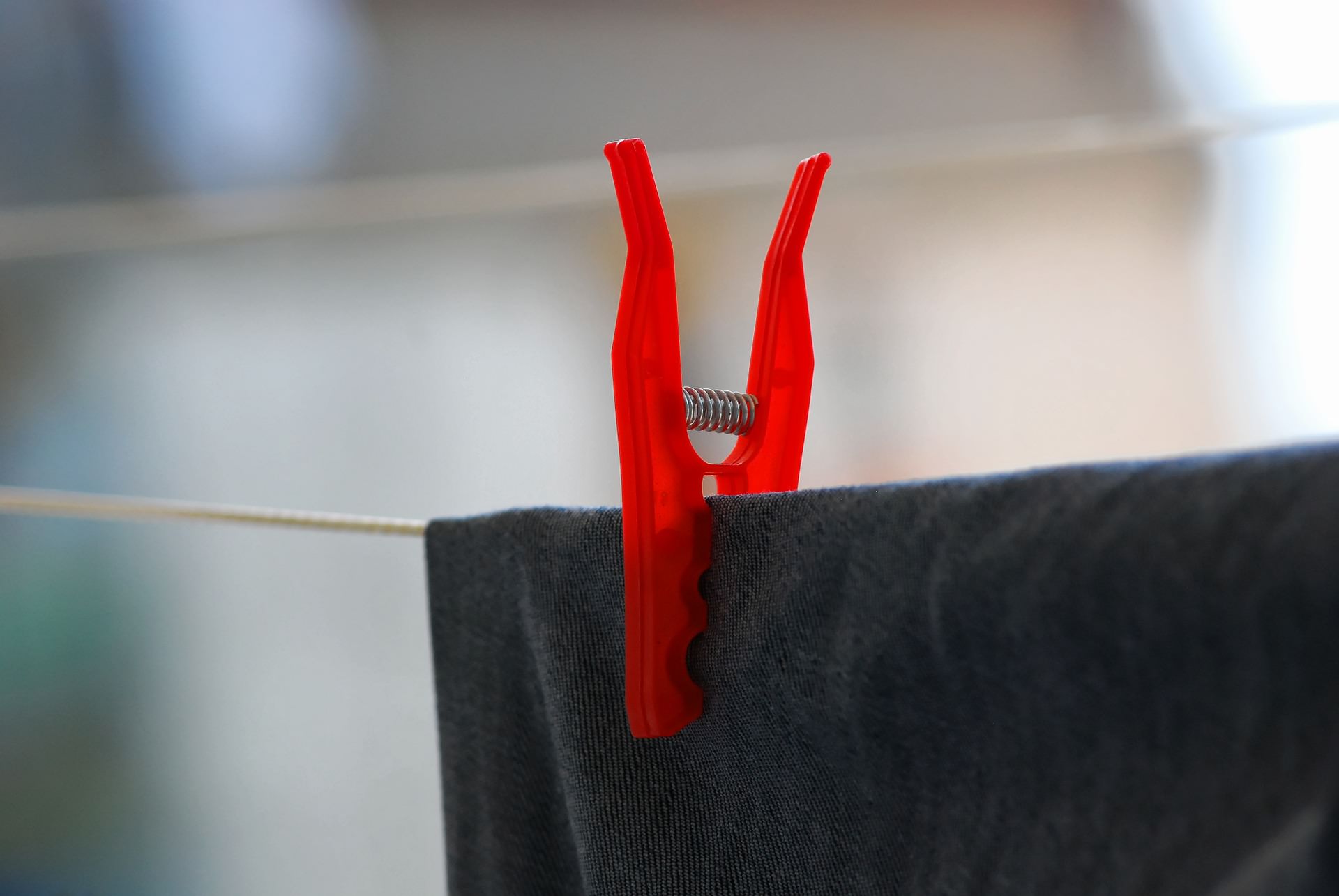
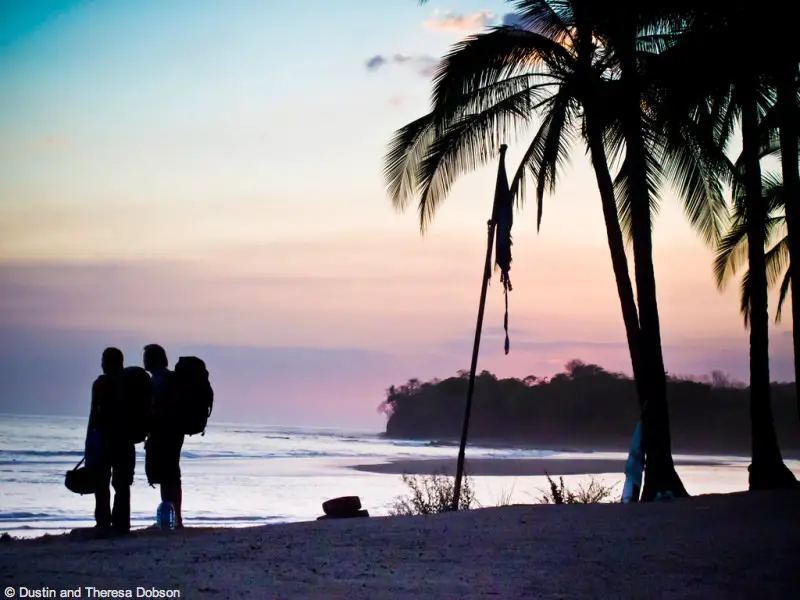





jajaja, i was just thinking this would be a good article someone needs to write about, a few days ago. Glad you got it up and enjoyed reading it.
Believe it or not, this was one of the very first topics covered on the Indie Travel Podcast! We’re in the process of trying to find and update out-of-date information, so we’re going to be re-covering some very old ground … but with a very new set of readers, I imagine. Should be fun 🙂
Maybe I’m just lazy, but I could never wash my clothes myself on the road. I always used a laundromat. Most of the time, it wasn’t that much money.
Definitely works well. Even travelling as a couple, we sometimes struggle to make a full load of washing though, unless we’re washing pretty much everything we own. Do you carry enough clothes to make it for over a week without washing them? or do you launder pretty regularly?
We got into the habit in Europe, which was our first three years of travel, as a laundromat there could cost as much as 5 euros a load or sometimes 2-3 euros a kilo … and that was our lunch money!
Great tips! The most expensive place to wash your laundry is probably at hotels – I get chills down my spine just thinking about the prices they charge!
Tell us about it! 1.50 euro per sock?! No thanks 🙂
We’ve done a lot of sink washing but never really thought about wearing the stuff into the shower, thought about walking into the ocean with it all on but that wouldn’t really have the desired affect.
Same here. I’ve done quite my share of sink washing but never had the idea of taking it to the shower.
Main problems for me are usually :
– find a plug (wish i’d find one that can adapt to every sink 😉 )
– Drying : more often than not i have put wet clothes in my bag because i was changing hotels when the landry from yesterday was not dry yet :/
@Poi The ocean would be refreshing, but yeah … I don’t think it’d have the desired effect 🙂
@Lemerou The plug problem can be tricky. If you have some bluetack, that works wonders or a rubber ball is great. You can use it as a plug or to throw around on the beach or in a park.
Drying is tricky. If something’s a little-to-reasonably damp, I prefer to wear it — and wear the dampness out of it — rather than packing it. If you’re travelling all day, you often have to wash damp clothes again, and that’s no fun.
My favourite tip that I picked up from someone else is to use a drybag for your washingt. Think about it – they are designed to keep water out, but they will also keep water in, just like a bucket!
I got a cheap 15litre one with the intention of using it for kayaking, and to protect electronics when it was raining, etc. It got more use, however, as a bucket. I put all my washing in along with a bit of powder, closed it up and gave it a good shake – just like a washing machine! I would then take all my stuff (incl towel, sarong, etc) to a laundry place every 3 weeks or so for a good machine wash.
It’s usually pretty easy to dry stuff when travelling in SE Asia as you often have a fan or aircon in the room. I hang up a clothesline in front of it overnight and most stuff is usually dry by morning.
You can also carry one of those flat rubber disks as a sink stopper. Those work wonders and are flat and light and easy to throw in your bag. It was a lifesaver for us in Paris as our hotel had no stopper in the sink and we handwashed clothes about every other night. The stretchy clothesline is also a great idea! The travel towels are also great. My husband and I use them all the time, even when visiting our children’s homes. We can pretty much go anywhere and not have to ask to use anything at the home/hotel we are staying in. Also, a couple of flat plastic hangers work well and take up little space in your bag. I take two with (with clips – that I get at a store with clothes on – just ask, they usually will just give them to you). I hang my travel towel or face cloth on these to dry out and it works great. You can hang them from anywhere to dry. Loved the podcast on this subject and the others that you do, too! Keep up the great work!! Wish I was traveling as much as you do! Hopefully, some day though!
Some more great ideas! Thanks so much for joining in the conversation.
Lisa, I’ve heard of people doing that (or just using a heavy-duty plastic bag) and I guess it makes sense if you’re using one as a drybag too. Good thinking.
Becky, the clothes-hanger idea sounds great for those with a suitcase. I imagine them getting snapped pretty quickly in my pack 😛 Hope to see you on the road somewhere.
There is a website that sells this product. http://www.travelwashbag.com. Brilliant
oh my… this is one thing i didnt do when i traveled last year… i always go to the laundry shop and have them wash everything hehe im really lazy… LOL
I pack a little bottle of Dr. Bronner’s Magic Soap, peppermint flavor. That stuff is so potent and so concentrate it can take the funk off nasty feet and clean up ripe clothes. And the stuff last forever.
great video!
~ J
Love your podcasts! I download them all from iTunes. One thing I noticed in listening to this podcast (#171) about packing and cleaning clothes while travelling is this – Linda, you kept referring to “jumpers” and I am aware of what they are in your country, but in America (where I am sure you have many listeners), a jumper is a sleeveless dress that you wear (usually) with a blouse or shirt underneath. Some people may be wondering why Craig (or any other guy, for that matter!) would wear a jumper. Just thought I would pass that along so you could clarify that for those of us in America who are not aware of what you consider a jumper! Best wishes and hope you enjoy your time in Viet Nam and Cambodia!
Hilarious! Thanks Becky. We do try and tone our language to an international audience, even though that means it’s a bit castrated at times … But jumper … Never saw that one coming 🙂